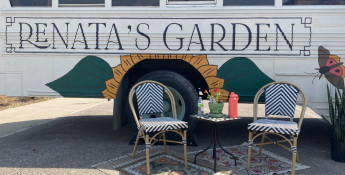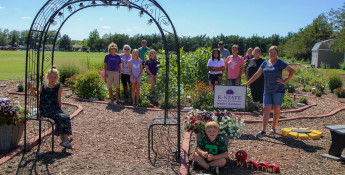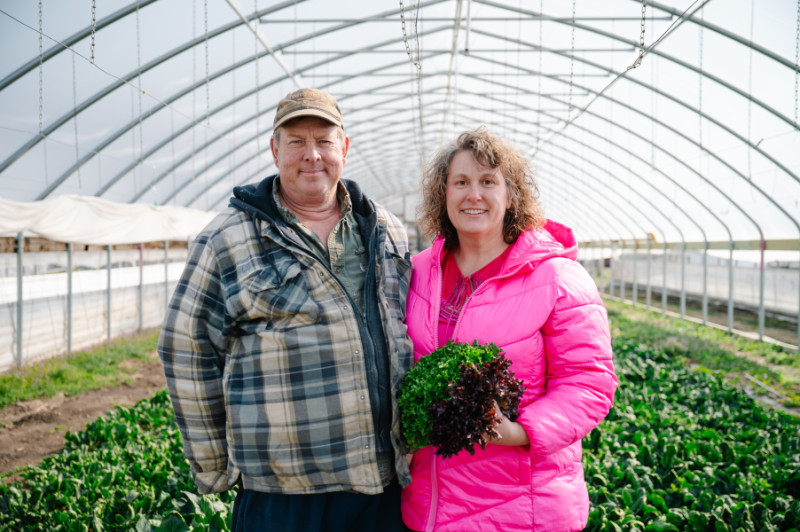By Sheridan Wimmer on January 30, 2025
Lettuce growers in Kansas help feed small town
These vegetable tunnels cultivate community in North Central Kansas
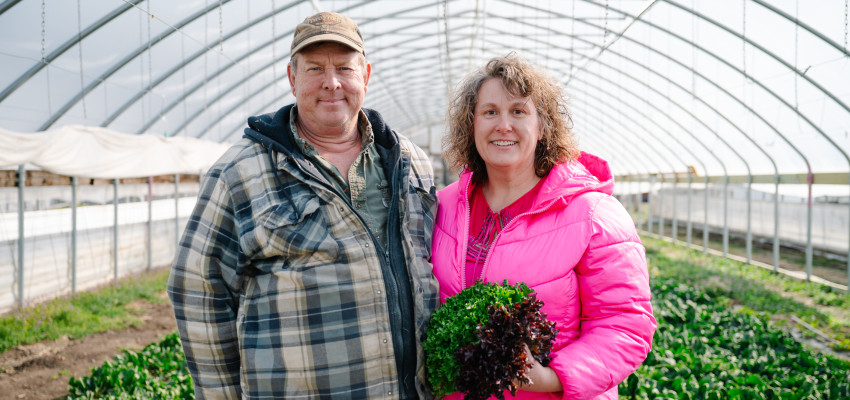
Heartland Highway — or if you prefer its proper name, U.S. 36 — stretches across Kansas from the Doniphan County town of Elwood on the Missouri River to Cheyenne County’s St. Francis near the Colorado state line. The nearly straight shot through the state features historical sites, landmarks, museums and popular antique stores that welcome visitors to each of its small towns with a friendly wave and a good reason to stretch your legs.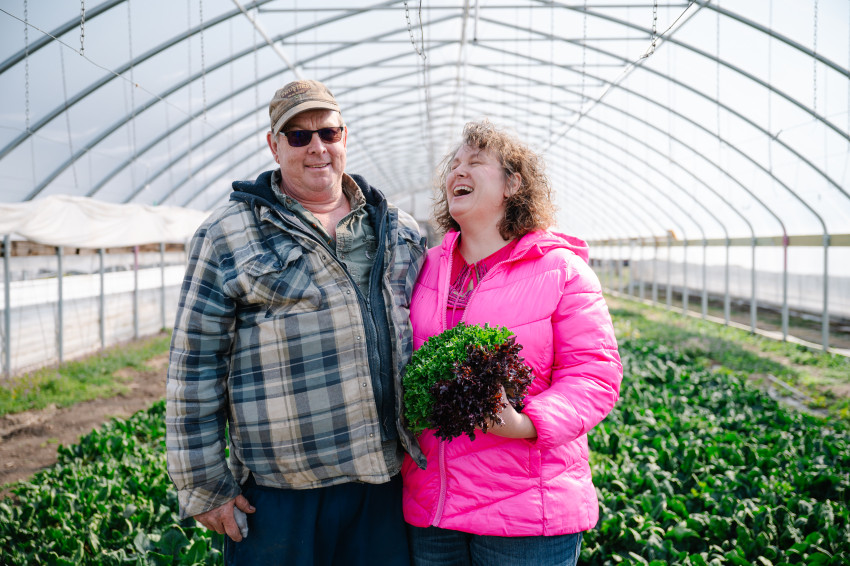
Between Washington and Mankato on U.S. 36 sits Scandia, a Republic County town with charm bigger than its population and one couple who is helping feed the community.
HIGH TUNNELS ON EMPTY LOTS
Two blocks south of Heartland Highway in Scandia is the town’s main street. Nestled on the edge of the road are high tunnels where Chris and Christi Janssen grow lettuce and vegetables. High tunnels, also called hoop houses, are greenhouse-like structures typically covered with polyethylene. They’re shaped like they sound — curved tunnels — and provide the opportunity to extend a growing season by about 30 to 45 days because of their ability to create a microclimate within their plastic walls.
The Janssens have three hoop houses, which were built in 2009 on an empty lot.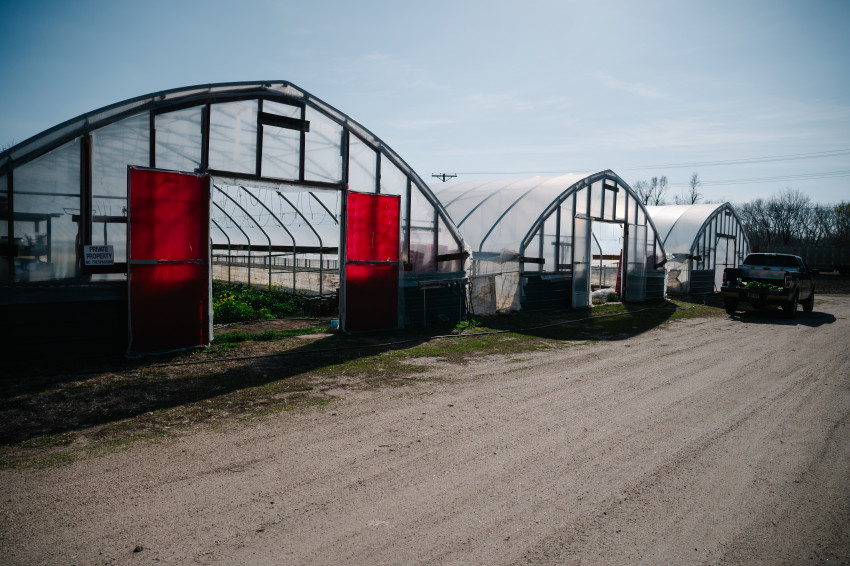 “There was a vacant lot in town, so we went to the city to ask if it was available and purchased the lot our high tunnels are on now,” Chris says. “It was an investment for us, but we were excited to utilize part of our town for new resources.”
“There was a vacant lot in town, so we went to the city to ask if it was available and purchased the lot our high tunnels are on now,” Chris says. “It was an investment for us, but we were excited to utilize part of our town for new resources.”
GROWING ROOTS OF RESILIENCE
As with many new business ventures, getting started took tenacity and perseverance.
“We created a business plan and applied for loans,” Christi says. “We were turned down by two different banks until we applied for a Rural Economic Development Loan.”
With a loan secured, the Janssen family got to work building their high tunnels, along with some reluctant help from their three kids.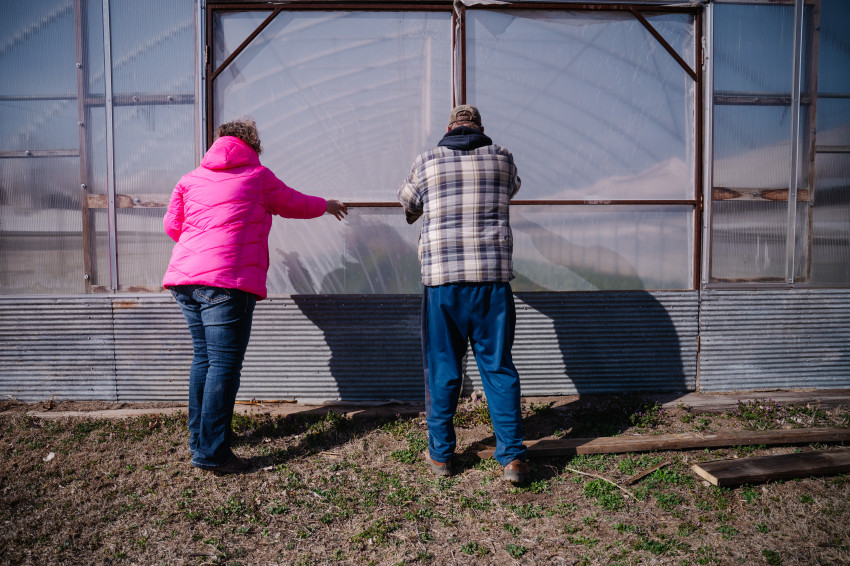
“I’m not sure that the kids always cared for having this kind of work growing up, but it was a great opportunity for them,” Christi says. “We sell at farmers markets, and it helped provide them with interpersonal skills since they were representing our farm. It helped them when they eventually interviewed for college scholarships.”
Chris and Christi both grew up in families who gardened and had a garden from the time they were married, so leaning into that knowledge and skill, they decided on career changes that took them from lessons in a classroom to lessons in lettuce.
“Chris has a science educator background, which really helps in understanding the best methods to grow produce,” Christi says. “I have a background of working with students and children, too, and it is so important that people understand gardening. We always take the time to answer any questions from consumers about gardening and our products.”
A BOUNTY OF FRESHNESS
The products the Janssens grow include several different varieties of lettuce such as buttercrunch and romaine, plus Asian greens like bok choy, tatsoi, mustard and more.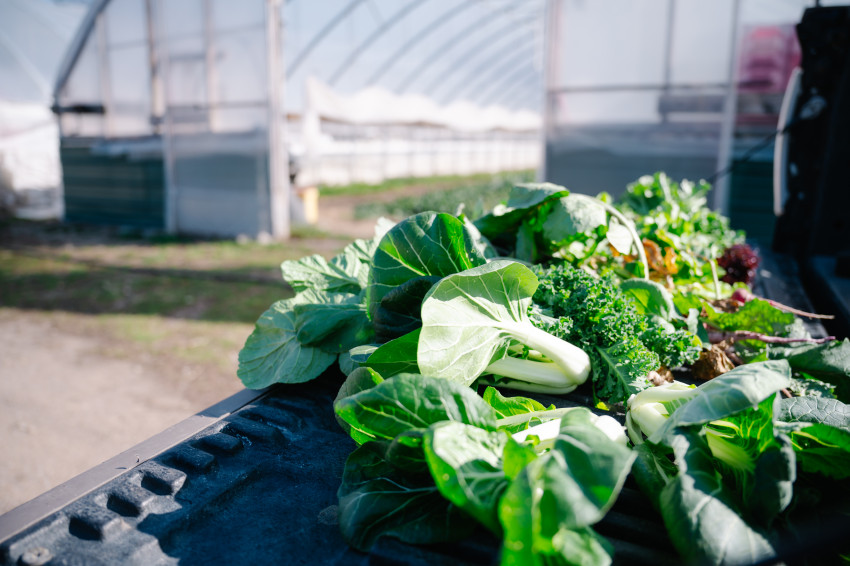
“Our spring mix can have as many as 40 different varieties of produce,” Christi says. “Sometimes we’ll also have spinach and a couple of different kinds of kale. We also grow tomatoes, cucumbers, peppers, watermelon, cantaloupe, onions and potatoes. We’ve grown artichokes and a specialty item called Romanesco broccoli. If a vegetable can be grown in Kansas, we’ve probably tried it.”
When the produce is ready to harvest, Chris and Christi take the products back to their house to double-rinse everything in their three-basin sink. The Janssens have a 10-gallon vegetable dryer that’s much like a salad spinner you’d use at home to remove moisture from lettuce, except this one is larger and greener (in color). Then everything sold as retail goes into eight-ounce bags for farmers markets.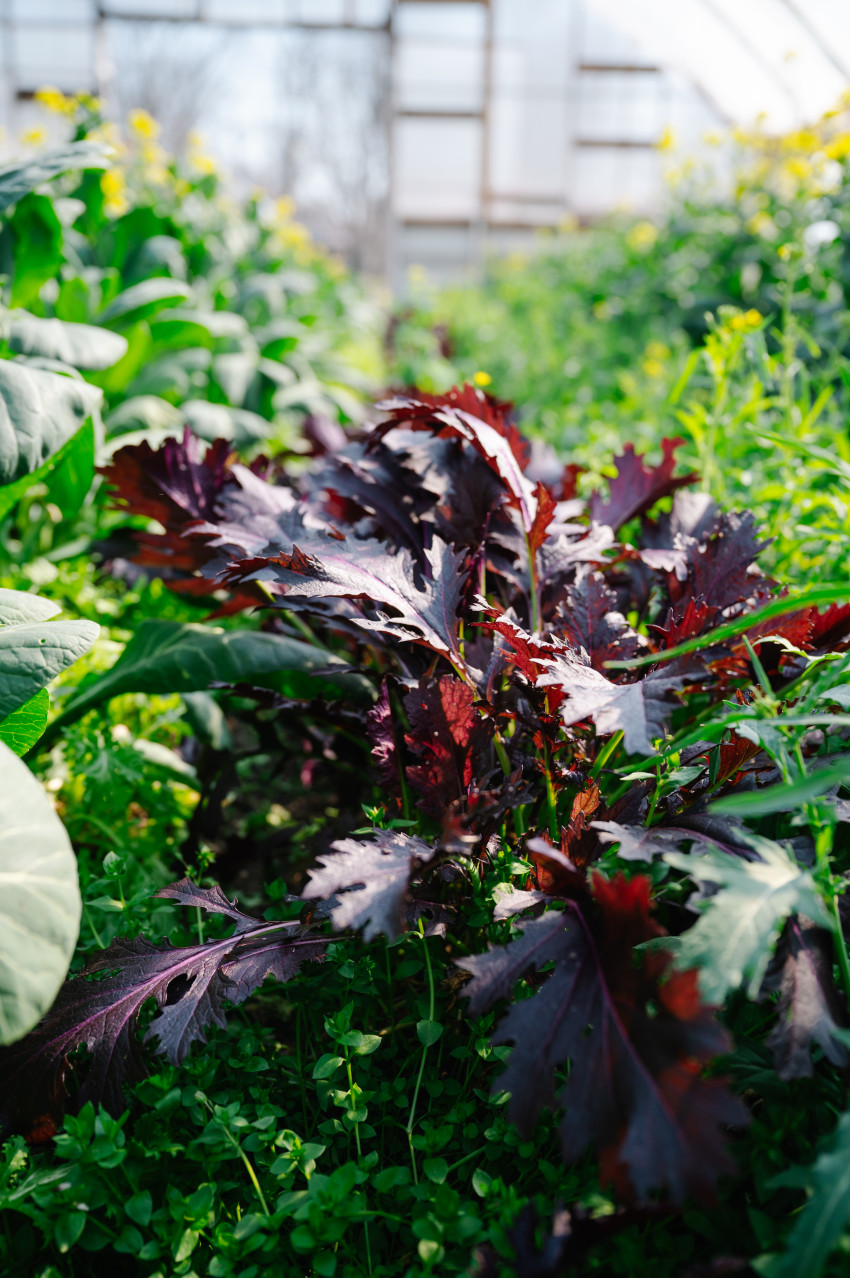
Visiting with customers at farmers markets is one of Chris’s favorite parts of the process.
“Watching the plants you grew with your hands is so fun,” Chris says. “But when people come up to you and tell you they love your product at a farmers market, that is just the best feeling.”
TRANSPLANTING TRUST IN COMMUNITY
In addition to farmers market venues, C & C High Tunnel Farms provides a Community Supported Agriculture (CSA) opportunity.
CSAs originated in the 1960s in Switzerland and Japan, where consumers were seeking safe food and farmers were seeking stable markets. The system is a type of direct marketing from farm to consumer with an understanding of mutual support, not only in the farmer providing food, but also in the consumer understanding the risks associated with growing food.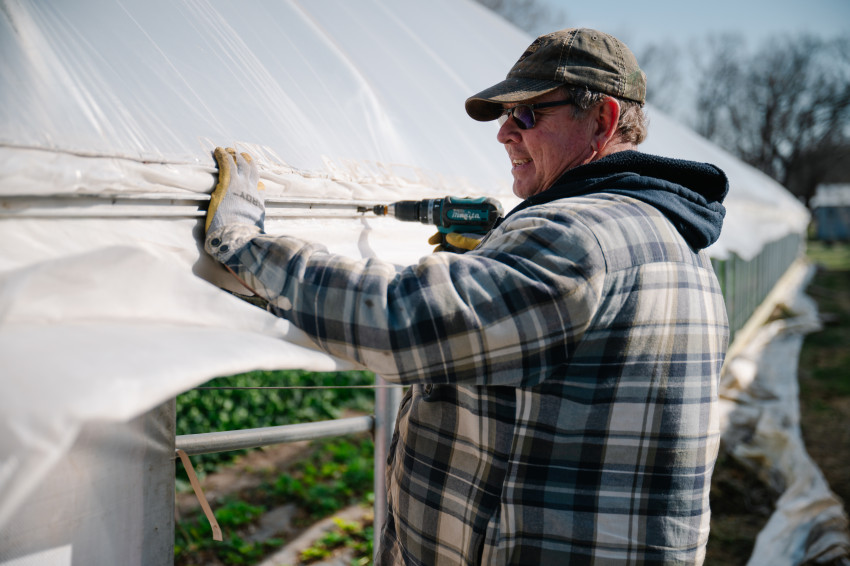
“Our 11th year of offering a CSA program was in 2024,” Christi says. “Because we are very rural, we had to establish it a bit differently and develop a delivery service. We travel from Marysville to Phillipsburg and from Superior, Neb., down to Salina. Whatever is in season each week, we pick and divide amongst the members of the CSA.”
NURTURING LAND AND LIVES
With the different avenues of selling their produce, the couple stays busy. Sustaining those efforts, whether through the soil or through the soul, they embrace the hard work it takes to continue their operation.
“It’s hard work, and it doesn’t happen easily,” Christi says. “Like farmers and ranchers, having the tenacity to keep going whether it’s a good or bad year — whether you lose a crop to drought or flooding, you pick up the pieces and you keep going because that’s your livelihood. For me, sustainability means working hard, being innovative, thinking outside of the box and asking yourself how you’re going to do things to market the produce and keep going year after year.”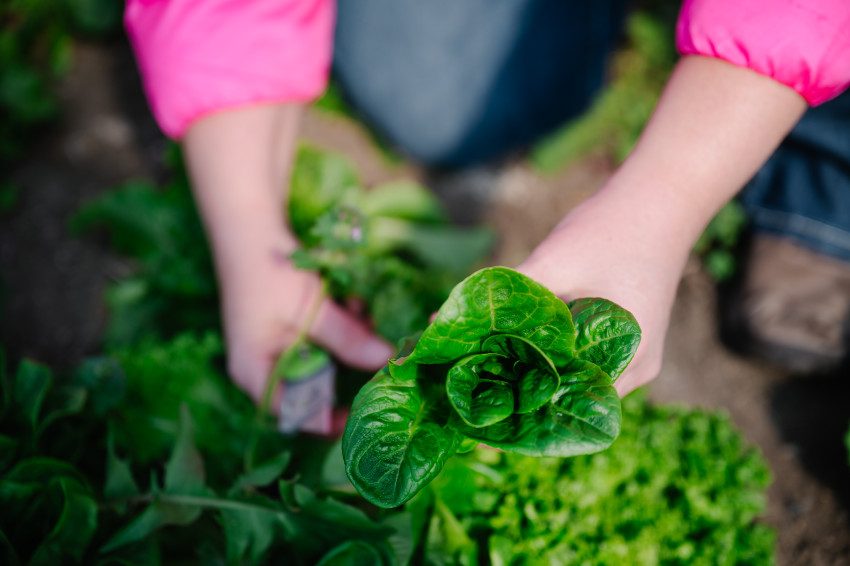
“That tenacity is so important,” Chris says. “But healthy soil, too, takes tenacity to care for. We make sure our soil can grow year-round. You can’t just plant and let it go. We work really hard to keep our soil healthy.”
FOSTERING AN OPEN-DOOR POLICY
The Janssens love what they do and sharing it with others — whether through a conversation or through providing fresh, local greens — and they are just up (or down) the road in Scandia.
“We welcome visitors,” Christi says. “Whether it’s a school wanting a tour or even when the Kansas Sampler Foundation had its Big Kansas Road Trip that went through Scandia, we opened the high tunnels for that. Building relationships is important with what we do, and we love sharing that with others.”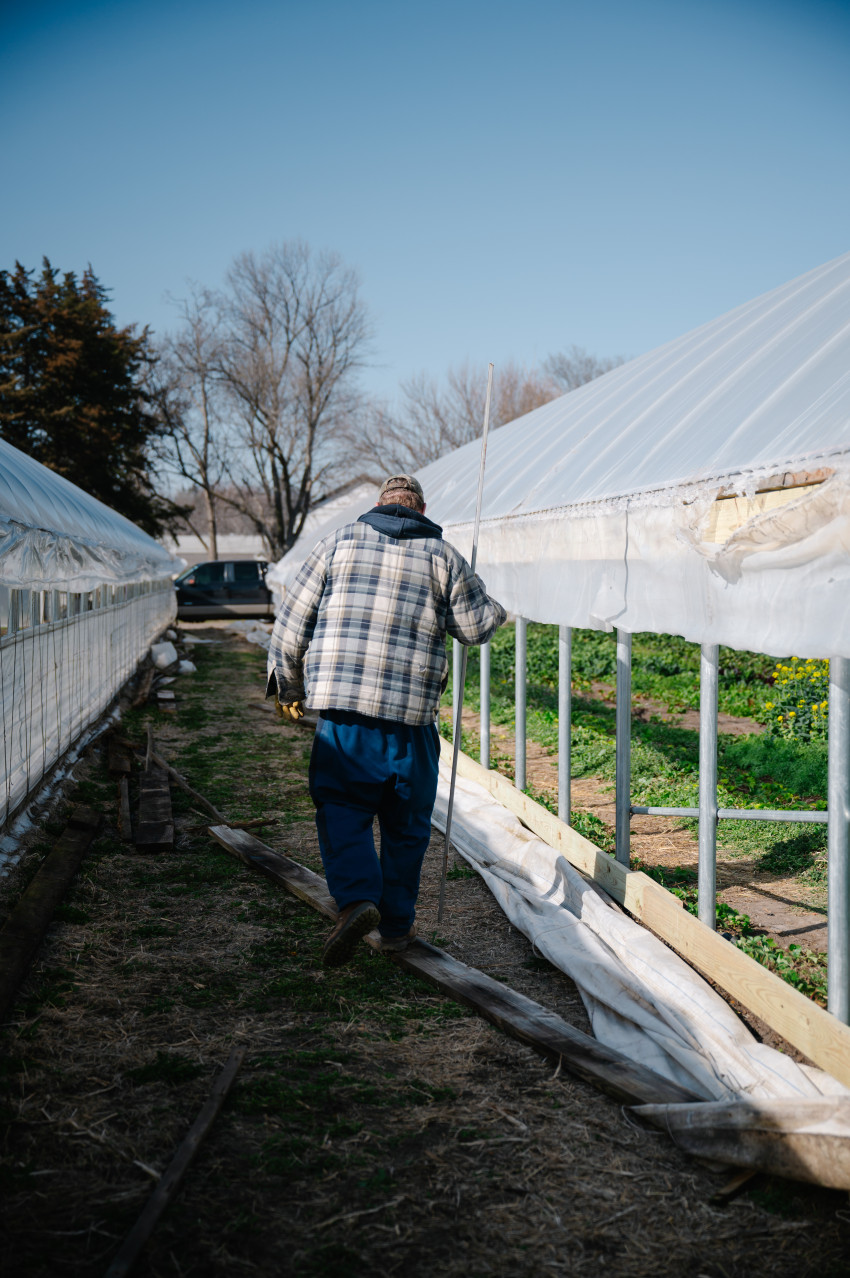
It isn’t called Heartland Highway just because it’s in Kansas and we’re in America’s heartland. It’s also because of people like the Janssens — in towns like Scandia — who have a heart for the land and foster that connection to provide healthful products for others to enjoy at the dinner table.
Learn more about C & C High Tunnels at www.cchightunnels.com.


